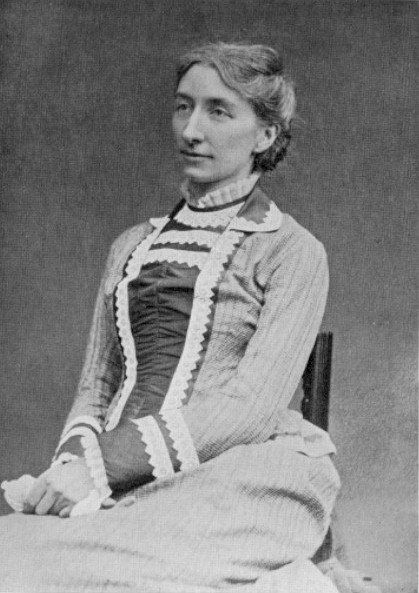
Born in Weymouth, Dorset, on 19 April 1810, Edward Cooper Hodge was the only son of Major Edward Hodge, a soldier who distinguished himself throughout the Napoleonic wars but who died when his son was only five. Educated at Eton, Edward Cooper developed a reputation at rowing. In 1826, he left the school to join his mother and sisters in Paris. Aged 16, he was given a Cornetcy in the 13th Light Dragoons but, after only four months, switched to the 4th Dragoon Guards, in which he served throughout his army career, reaching the rank of general. He died in 1894. A little more biographical information is available from the British Medals and Irish Masonic History websites.
Hodge is remembered largely because of a diary he kept during the Crimean War. It was edited by the Marquess of Anglesey, and published by Leo Cooper 1971 as Little Hodge: Being Extracts from the Diaries and Letters of Colonel Edward Cooper Hodge Written During the Crimean War, 1854-1856.
The Crimean War, part of a larger conflict for influence over lands once dominated by the Ottoman Empire, was fought in the mid-1850s between the Russian Empire and an alliance of the British, French and Ottoman Empires. The Battle of Balaclava, on 25 October 1854, was one of the key events of a campaign within the Crimean War to capture Sevastopol, Russia’s principal naval base on the Black Sea. And much the best remembered event of that battle if not of the whole Crimean War is the Charge of the Light Brigade, which was immortalised in a poem by Alfred Tennyson.
Hodge’s diary is filled with short succinct entries, though one of the longest is for the day of the Battle of Balaclava. Here is that entry, and another short one for the following day.
25 October 1854
‘The Russians in great force attacked the outposts and forts garrisoned by the Turks, who were quickly turned out with a loss of 9 guns.
In fact the Turks, opposed by at least ten times their number, put up an heroic resistance which gave the allies more than an hour’s invaluable breathing space.
After suffering 170 casualties, they were driven from the first three redoubts. The Russians now poured infantry into these, and brought up to them a number of field-pieces. All this time Lucan could do nothing but make threatening demonstrations whilst falling back before the slowly advancing Russians, and ordering his horse artillery to try to reply to their much bigger guns. On Sir Colin Campbell’s advice, Lucan soon withdrew to the left, so as to be out of the line of fire of both the Russian guns and the 93rd, and in a position to attack the flank of the Russians should they charge the Scottish infantry. This now happened.
Their cavalry attacked the 93rd, who perceived them with a volley, and turned them.
The left column was only a small part of Liprandi’s mounted arm, perhaps 400 in number. Almost immediately after its defeat, a large body of cavalry came into the plain and were charged by the Greys and the Inniskillings. We were in reserve, and I brought forward our left and charged these cavalry in flank. The Greys were a little in confusion and retiring when our charge settled the business. We completely routed the hussars and cossacks, and drove them back.
[The editor, the Marquess of Anglesey, says here: ‘A more pithy description of the charge of the Heavy Brigade does not exist.’]
They retired, and then Lord Raglan should have been satisfied. The Russians retired to a strong position, a valley with batteries on the heights in front and on each flank. There was a battery of 9 guns in front of us, and a body of cavalry, and all these batteries on the heights.
Lord Raglan ordered the light cavalry to charge these guns and cavalry. They did so in the most gallant manner, but at the sacrifice of nearly the Brigade. The guns played upon them at about 200 yards from the batteries in front and flank. They advanced, took the guns, and charged the cavalry, who met them well. They were so knocked to pieces by the guns that the cavalry overpowered them, and they were obliged to retire having lost in every regiment some two 3rds of their men and officers. We advanced to cover their retreat, but the batteries got our range and began cutting us up terribly. I was not sorry when we were ordered to retreat.
[The editor says here: ‘Except for the facile way in which the blame for it is unhesitatingly placed upon Raglan, this is a surprisingly accurate outline of the famous Charge of the Light Brigade.’]
The Russians did not follow, or quit their strong position, and we remained on the ground till 8pm, when we were ordered to return to our camp, and to go to the rear some two miles, which we did.
Both my servants got brutally drunk, and I found them lying on their backs, and with difficulty I was enabled to save my baggage. I got up my bed in Forrest’s tent and slept there.
Our loss today was 1 killed (Ryan), 1 severely (Scanlan) and 4 slightly wounded.
Many officers of Light cavalry were killed, and a number slightly wounded. There were no infantry early in the morning, and when they did come they were not engaged. The light cavalry were murdered in doing work, when infantry should have been first engaged, and artillery were indispensable. A very fine, warm day.’
26 October 1854
‘I find my rascally servants not only got drunk, but they committed robberies upon the officers’ stores. They have lost my tent, and I only wonder that I have any kit left. I am most uncomfortable with such blackguards as these about me. I am far from well today. I am much purged and griped.’









